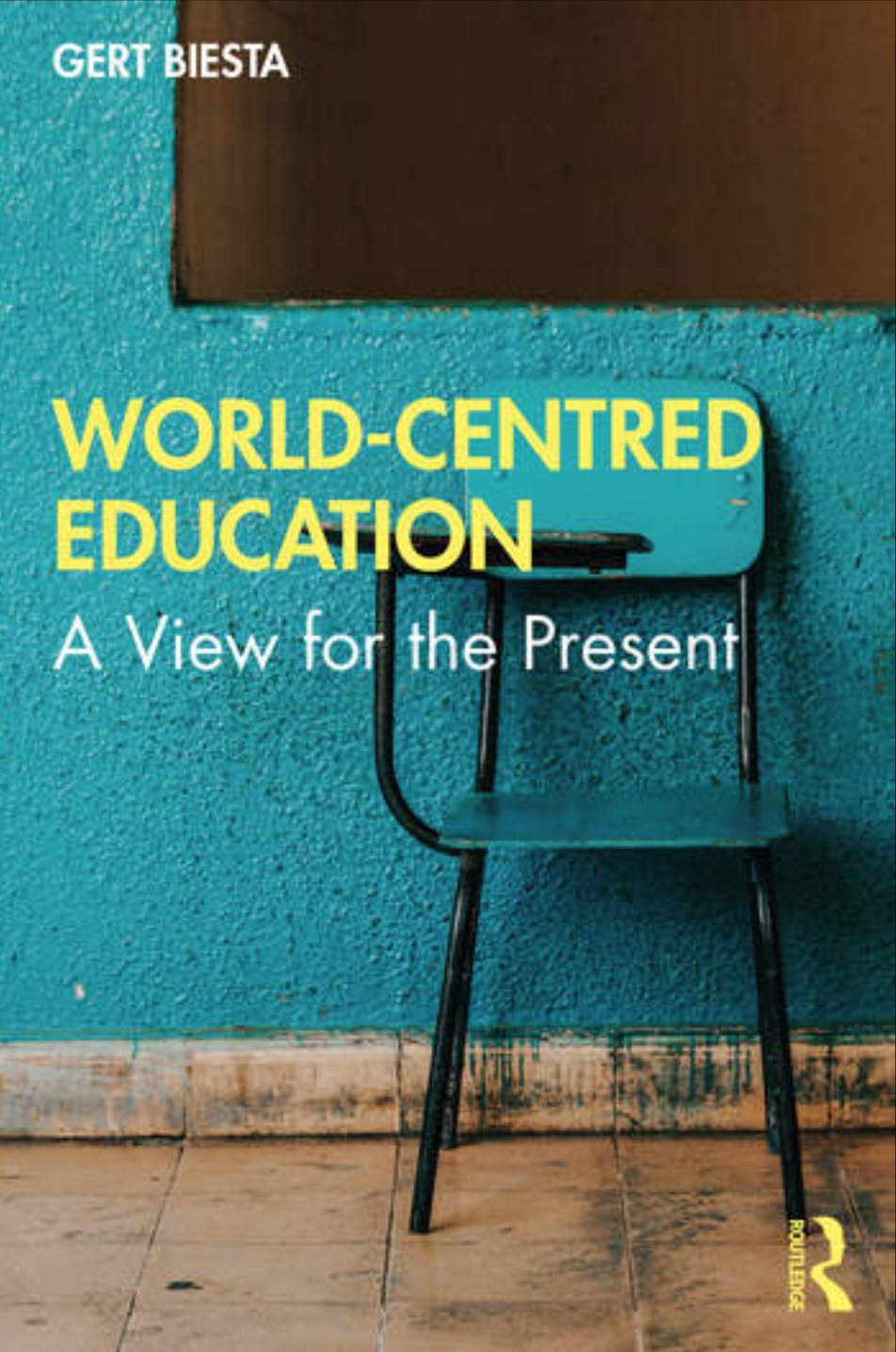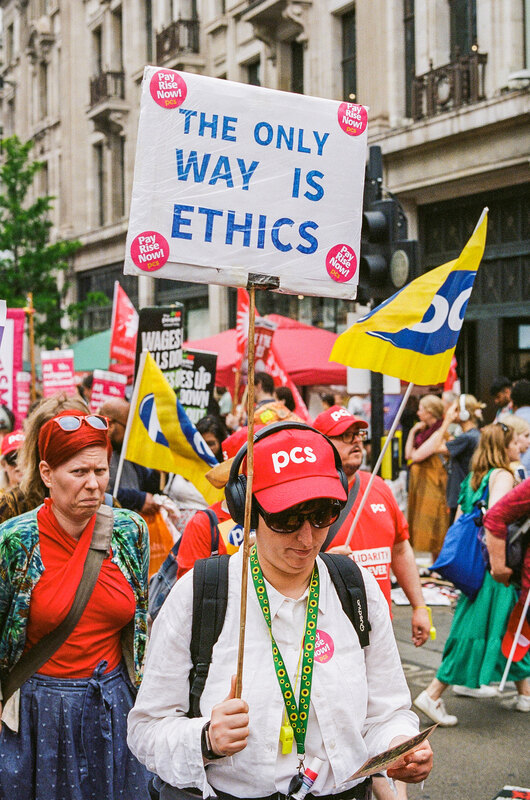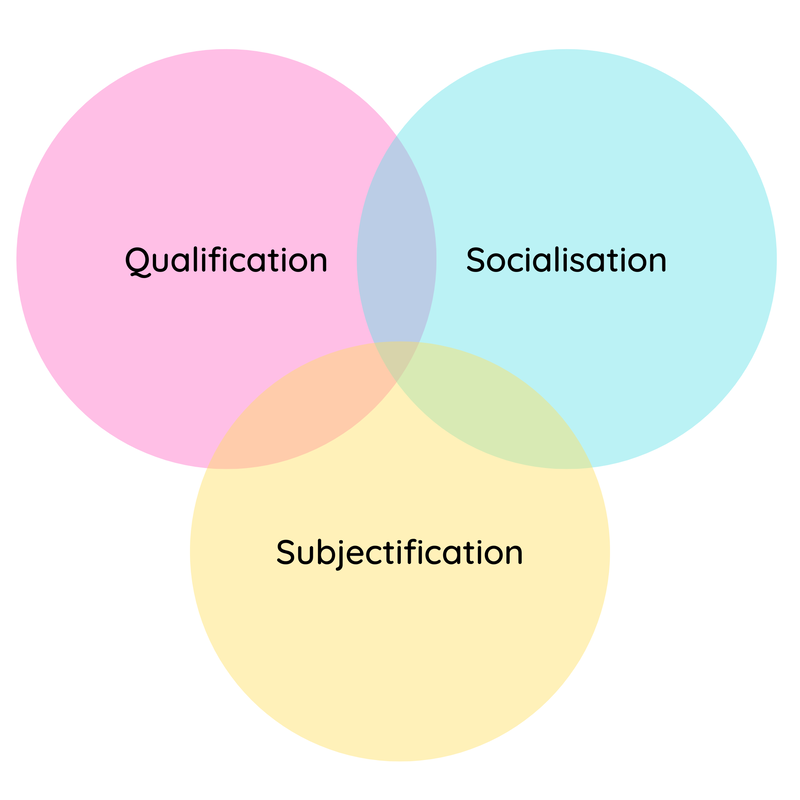The sub-heading for this blog is "occasional musings about photography education". Since we haven't posted anything for over a year, this is something of an understatement. Nevertheless, a new academic year is fast approaching and I have what my wife refers to as "new satchel syndrome" and so here are a few thoughts about teaching.
A brief health warning:
- Nearly all of what I'm about to write is based entirely on the work of Gert Biesta, particularly his most recent book World Centred Education (which I strongly recommend every teacher, regardless of specialism, reads). In a relatively long career, I have read numerous education texts but it's no exaggeration to say that none of them has made more sense to me than this one.
- I am not a philosopher nor an expert on ethics. Therefore, all these thoughts are offered in a spirit of amateur enthusiasm and I welcome any and all feedback about my weak logic.
- I have divided this post into two parts. Part 1 sets up the argument. Part 2 attempts to answer the question posed at the end of Part 1. The alternative would have been a very long read!
I wonder how many teachers begin their planning for the new year thinking about ethics?
So many problems. So little cardboard!
I feel very fortunate to work in a local authority state comprehensive school which affords me a high level of professional autonomy. I have friends and colleagues in less fortunate circumstances. What, and to some extent how, they teach is very strictly policed. I am fully aware of my privileged position. Moreover my headteacher chaired a national commission which produced a Framework for Ethical Leadership in Education. But ethics isn't just for school leaders. I suppose what I'm suggesting is that all of us could spend a bit more time reflecting on the purposes of education.
This is where the brilliant Biesta is so helpful. There's no substitute for reading Biesta's lucid, closely-argued but accessible texts. All I can hope to do is cherry-pick the bits that appeal to me and encourage you to seek out the rest for yourselves. There are some very good clips of him speaking on YouTube.
Qualification - knowledge and skills (what students need to know and be able to do)
Socialisation - cultures, traditions and practices (how we do things here)
Subjectification - the freedom to act or refrain from acting as a person
Subjectification is a tricky concept and one that seems (to me) to be less important in CPD planning and provision. Biesta offers this further explanation (my italics):
This is not about freedom as a theoretical construct or complicated philosophical concept, but concerns the much more mundane experience that in many — perhaps even all — situations we encounter in our lives. We always have a possibility to say yes or to say no, to stay or to walk away, to go with the flow or to resist — and encountering this possibility in one's own life, particularly encountering it for the first time, is a very significant experience. Freedom viewed in this way is fundamentally an existential matter; it is about how we exist, how we lead our own lives, which of course no one else can do for us. Put differently, freedom is a first-person matter. It is about how I exist as the subject of my own life, not as the object of what other people want from me.
[...] perhaps we have lost a language to talk about these things, so that there is a need to rediscover and reclaim a different language for education and perhaps we have ended up in a system that prevents us from thinking and talking about what really matters in education? What should matter in education? What’s it all about?
No-one would deny that photography education should be concerned with knowledge, skills, cultures and traditions. But If we accept, for a moment, that education should also be oriented towards the freedom of the individual, what implications does that view have on our day-to-day practice in the classroom? And how might we engage our students in reflecting on the relationship between photography and (their) freedom?
Tune in again soon (hopefully not as long as the last gap between blog posts!) for Part 2, in which I offer some thoughts on the subjectification of photography education.




 RSS Feed
RSS Feed